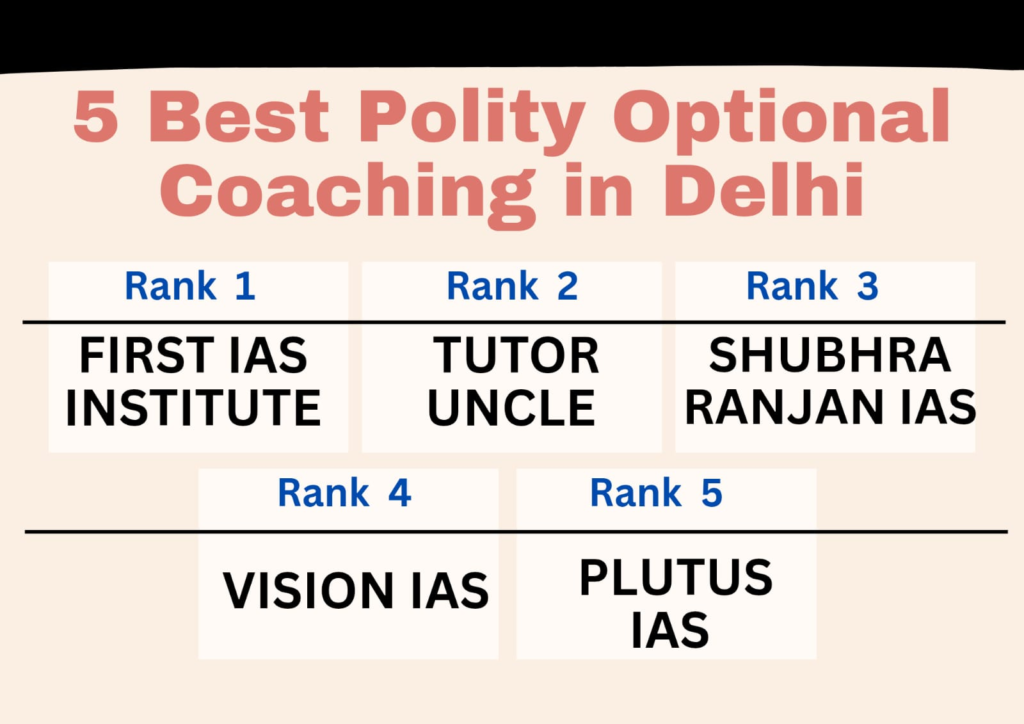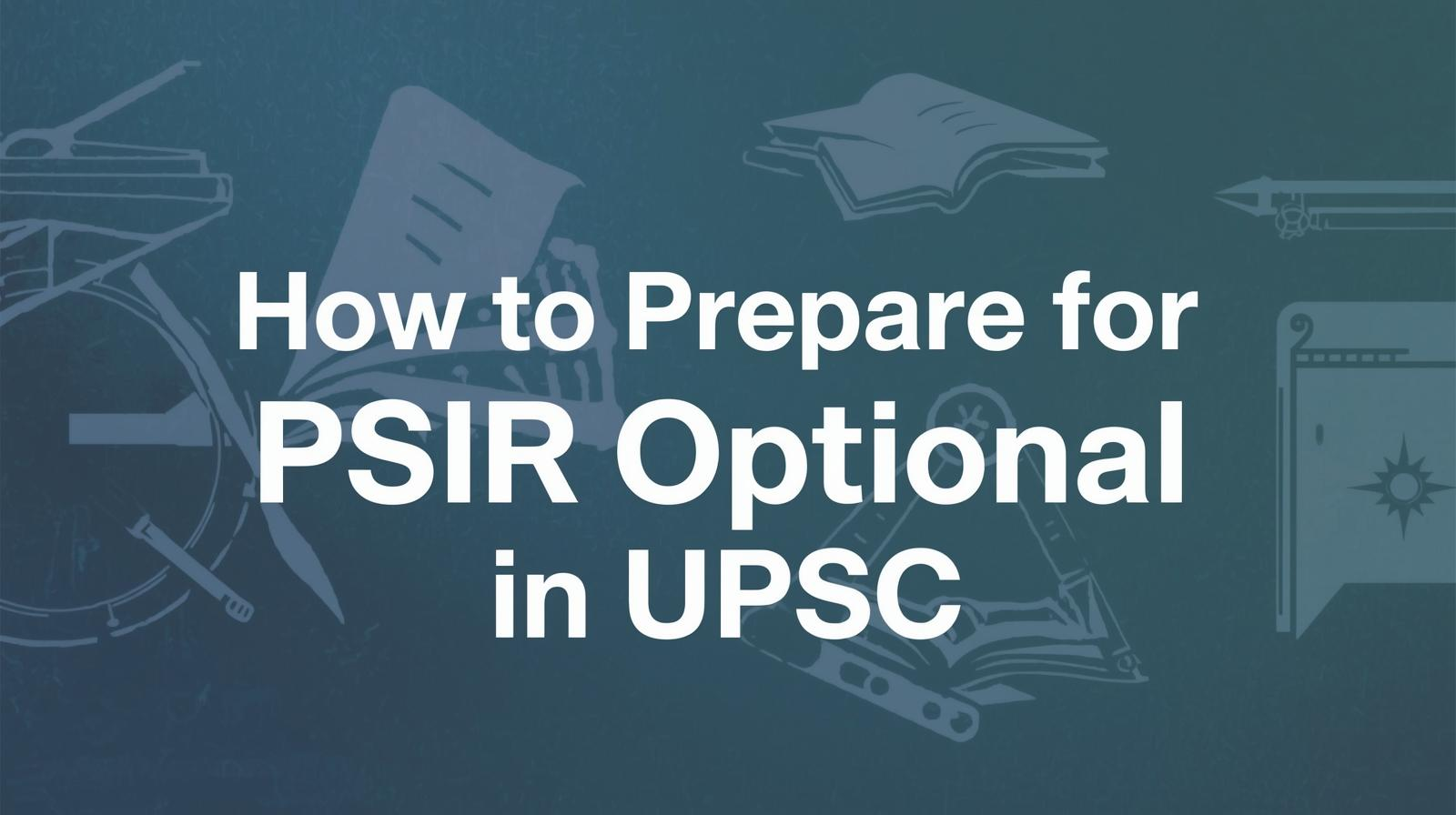Choosing the right optional subject is a cornerstone of a successful strategy for the UPSC Civil Services Examination. Political Science and International Relations (PSIR) has consistently remained a preferred choice for aspirants due to its high scoring potential, significant overlap with the General Studies syllabus, and its inherent nature which develops a keen analytical perspective on domestic and global affairs. However, mastering PSIR requires more than just superficial reading; it demands a structured, multi-pronged approach that combines deep conceptual understanding with the fine art of answer writing.
Preparing for PSIR is a marathon, not a sprint. It involves building a strong foundation, staying abreast of contemporary issues, and relentlessly honing one’s ability to articulate complex ideas within the constraints of the examination. A well-thought-out strategy can transform this challenging subject into your greatest asset in the mains examination. This comprehensive guide outlines a step-by-step approach to preparing for the PSIR optional, covering everything from understanding the syllabus and selecting the right books to mastering answer writing and integrating current affairs effectively.
Free Demo Class for PSIR Optional By – FIRST IAS INSTITUTE
Understanding the Syllabus and Exam Pattern
The first and most fundamental step in your preparation journey is to thoroughly deconstruct the official UPSC syllabus for PSIR. Do not just read the syllabus; internalize it. Print it out and keep it on your study table. The syllabus is your roadmap and will guide you on what to read and, more importantly, what to ignore. It is divided into two papers, each with two sections.
- Paper 1: Political Theory and Indian Politics
- Section A: Political Theory and Indian Political Thought: This section deals with the core philosophies and theories of political science. It covers political theory, ideologies, and the thoughts of both Western and Indian political thinkers. The questions here are often static and require deep conceptual clarity.
- Section B: Comparative Politics and International Relations: This part focuses on comparative political analysis, models of state, and foundational theories of international relations. It lays the theoretical groundwork for understanding global politics.
- Paper 2: India and the World
- Section A: Indian Government and Politics: This section has a significant overlap with GS Paper-II. It covers the Indian Constitution, the functioning of various institutions, federalism, and political processes. However, the questions in the optional paper demand a deeper, more academic, and critical perspective than in GS.
- Section B: India and the World: This is the most dynamic part of the syllabus. It deals with India’s foreign policy, its relations with major powers and neighboring countries, and its role in international organizations.
Understanding the pattern of questions by analyzing Previous Year Questions (PYQs) is as important as understanding the syllabus. It will reveal that UPSC often asks analytical and opinion-based questions that require you to connect static theories with dynamic contemporary events.

Building a Strong Foundation: The Booklist
While it is tempting to gather a mountain of books, the key is to limit your resources and revise them multiple times. A well-chosen set of standard books is more than sufficient to build a strong foundation.
Paper 1, Section A: Political Theory and Indian Political Thought
For this section, focus on building clarity on core concepts and the philosophies of various thinkers.
- An Introduction to Political Theory by O.P. Gauba: This is the foundational book for political theory. Read it selectively to understand concepts like justice, liberty, equality, and sovereignty.
- A History of Political Thought: Plato to Marx by Subrata Mukherjee & Sushila Ramaswamy: This book provides a comprehensive overview of Western political thinkers.
- Indian Political Thought: Themes and Thinkers by M.P. Singh & Himanshu Roy: A crucial resource for understanding the perspectives of Indian thinkers from ancient to modern times.
Paper 1, Section B: Comparative Politics and International Relations
This section requires a blend of theoretical knowledge and an understanding of global political systems.
- Comparative Politics by J.C. Johari: A good starting point for understanding the concepts of comparative political analysis.
- Global Politics by Andrew Heywood: This is an indispensable resource for understanding theories and key issues in international relations. It is comprehensive and written in an accessible style.
- The Globalization of World Politics by John Baylis, Steve Smith, and Patricia Owens: Read this book selectively for a deeper academic perspective on IR theories.
Also Read: 5 Best Polity Optional Coaching in Delhi
Paper 2, Section A: Indian Government and Politics
While you will study this part for GS-II, the optional requires a more scholarly approach.
- Indian Polity by M. Laxmikanth: This is the basic text, essential for facts and articles, but it is not sufficient for the optional.
- The Oxford Companion to Politics in India edited by Niraja Gopal Jayal and Pratap Bhanu Mehta: This book is excellent for developing analytical perspectives on various themes in Indian politics. Read selected chapters as per the syllabus.
Paper 2, Section B: India and the World
This section is highly dynamic and requires continuous updating from current affairs.
- India’s Foreign Policy in a Changing World by V.P. Dutt: A classic text that provides a good historical overview.
- Does the Elephant Dance? by David M. Malone: Offers contemporary insights into India’s foreign policy.
- Newspaper Editorials: The Hindu and The Indian Express are non-negotiable. Pay special attention to articles on foreign policy and international relations.
The Art of Note-Making for PSIR
Effective note-making is crucial for revision and retention. Do not simply copy from books. Your notes should be a concise, structured, and personalized summary of your understanding.
- Structure Your Notes: Create notes topic-wise as per the syllabus. For each thinker, your notes should include their core ideas, key terms they used, their criticisms of other thinkers, and critiques of their own theories.
- Use Mind Maps and Flowcharts: For complex topics like IR theories or the evolution of the Indian party system, visual aids like mind maps can be extremely helpful.
- Interlink Concepts: Your notes should reflect the connections between different topics. For example, while making notes on India-US relations, link them to the IR theories of realism and liberalism.
Integrating Current Affairs
Current affairs are the lifeblood of PSIR, especially for Paper 2. You must develop the skill of linking contemporary events with the static theoretical parts of the syllabus.
- Dedicated Reading: Devote at least 1-2 hours daily to reading a good newspaper. Focus on the editorial, opinion, and world pages.
- Follow Reputable Sources: Supplement your newspaper reading with resources like the Observer Research Foundation (ORF), Institute for Defence Studies and Analyses (IDSA), and magazines like the Economic and Political Weekly (EPW) for in-depth analysis.
- Make Current Affairs Notes: Maintain a separate notebook for PSIR-related current affairs. For any international event or foreign policy development, make a note of the facts, the analysis provided by experts, and try to connect it to a relevant theory or concept from your syllabus.
Also Read: 5 Best Polity Optional Coaching in Delhi
Mastering Answer Writing for PSIR
Knowledge alone will not fetch you marks; the ability to present that knowledge in a structured, analytical, and coherent manner is what truly matters.
- The Ideal Structure: A good PSIR answer typically has three parts:
- Introduction: Briefly introduce the topic, define key terms, and mention the scholars or theories you will be discussing.
- Body: This is the core of your answer. Present your arguments logically, using paragraphs. Substantiate your points by quoting thinkers and scholars. Provide counter-arguments for a balanced perspective and use contemporary examples to illustrate your points.
- Conclusion: Summarize your main arguments and offer a balanced, forward-looking conclusion.
- Practice Daily: Start by writing one or two answers daily. Initially, focus on quality and structure rather than speed. As you gain confidence, start writing timed answers.
- Analyze Previous Year Questions: Solving PYQs is the best way to understand the demand of the exam and practice writing relevant answers.
Seeking Expert Guidance: The Role of Coaching
While self-study is the foundation, expert guidance can provide a structured path, save valuable time, and offer the critical feedback necessary for improvement. A good coaching institute can help you understand complex concepts, provide curated study materials, and, most importantly, offer a robust platform for answer writing evaluation.
Conclusion
Preparing for the PSIR optional is a challenging yet intellectually rewarding process. Success in this subject hinges on a disciplined and consistent strategy. The key is to build a strong conceptual base with standard books, supplement it with dynamic knowledge from current affairs, and master the skill of answer writing through relentless practice. Remember to revise regularly and evaluate your progress through mock tests. With a clear strategy and unwavering dedication, you can transform your PSIR preparation into a decisive advantage in your UPSC journey.

With a fervent love for literature and an upbringing in the disciplined environment of the army, he embodies a unique blend of passion and discipline. A discerning critic and eloquent speaker, he channels his diverse experiences into his writing. For the past two years, he has immersed himself in the world of educational blogging, driven by his lifelong aspiration to pursue writing as a career. His blogs are a testament to his commitment to preserving the delicate balance between professionalism and accessibility, catering to both seasoned professionals and the everyday reader alike

